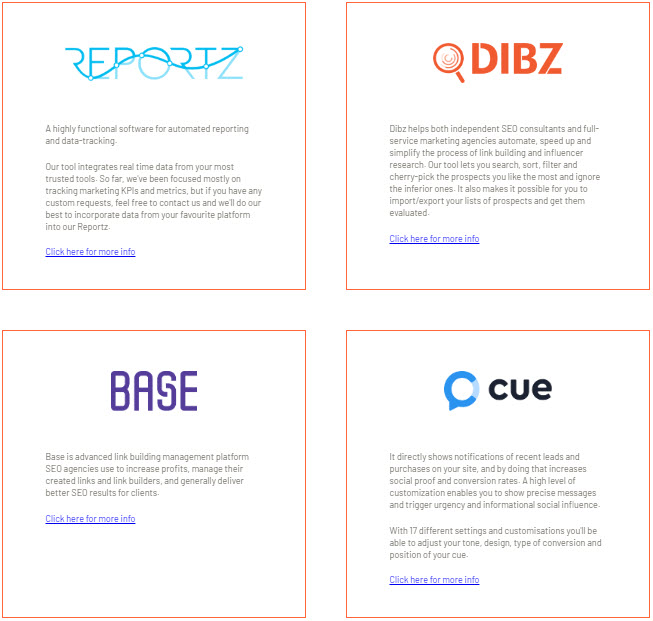
Mastering Local SEO Australia for Businesses
Post Author: Harry James
Post Date: 28 June 2024
Local SEO is a crucial component of digital marketing for Australian businesses. With the increasing use of mobile devices and location-based searches, optimising your online presence to target local customers can significantly boost your visibility and sales, making local seo important for driving highly motivated, potential customers to your store. This comprehensive guide will help you master local SEO and effectively reach your target audience in Australia.
Understanding Local SEO
Local SEO focuses on optimising your online presence to attract more business from relevant local searches. These searches take place on Google and other search engines when people look for products and services near them. Search engines use various factors to display local results, and mastering local SEO involves optimising your website and online profiles to ensure you appear in these local search results and improve your local rankings.
Key Components of Local SEO
- Google Business Profile: Claiming and optimising your Google Business Profile listing is essential. Ensure all your business information is accurate and up-to-date, including your address, phone number, business hours, and categories. Regularly update your listing with photos, posts, and reviews to engage with your audience.
- Local Keywords: Incorporate local keywords into your content. Use tools like Google Keyword Planner to find relevant keywords for your area. Include city names, neighbourhoods, and other local identifiers in your website content, meta tags, and URLs.
- Online Reviews: Encourage satisfied customers to leave positive reviews on your Google Business Profile listing and other review platforms. Respond to reviews promptly and professionally. Positive reviews build trust and improve your local search rankings.
- Local Citations: Ensure your business information is consistent across all online directories and citation sites. Inconsistent information can confuse search engines and harm your local SEO efforts. Use tools like Moz Local to manage your citations.
Optimising Your Website for Local SEO
- On-Page SEO: Optimise your website’s on-page elements, including title tags, meta descriptions, headers, and content, with local keywords. For example, use phrases like “best café in Sydney” or “plumber in Melbourne” to target local searches. A well-executed on-page SEO strategy is a fundamental part of any local SEO campaign.
- Mobile-Friendly Design: Ensure your website is mobile-friendly, as many local searches are conducted on mobile devices. Google prioritises mobile-optimised sites, so a responsive design is crucial for local SEO.
- Location Pages: If your business has multiple locations, create a dedicated page for each one. Include the address, phone number, business hours, and unique content for each location. This helps search engines index your locations separately and improves your chances of appearing in local search results.
- Local Content: Create content that is relevant to your local audience. Write blog posts about local events, news, and trends. This not only engages your audience but also signals to search engines that your website is relevant to the local area.
Leveraging Social Media for Local SEO
Social media platforms are powerful tools for local SEO. Here’s how to use them effectively:
- Local Engagement: Engage with your local audience by posting about community events, local news, and other relevant topics. Use local hashtags to increase your visibility.
- Consistent Information: Ensure your business information on social media profiles is consistent with your website and GMB listing. This consistency helps search engines verify your business information.
- User Interaction: Respond to comments, messages, and reviews on social media promptly. Active engagement shows potential customers that you are attentive and reliable.
Incorporating advanced local SEO tips can further enhance your social media strategy and boost your local SEO rankings.
Tracking and Measuring Success
Use analytics tools to track and measure the success of your local SEO efforts. Google Analytics and GMB Insights provide valuable data on how users find and interact with your business online. Monitor your website traffic, search rankings, and customer engagement to identify areas for improvement. Additionally, find local keywords to better target your audience and enhance your local search rankings.
Utilising Google My Business and Local Business Directories
Local business directories are crucial for improving your local SEO. Here’s how to make the most of them:
- Consistent Information: Ensure your NAP (Name, Address, Phone number) information is consistent across all directories. This consistency helps search engines verify your business information.
- Claim Your Listings: Claim and optimise your listings on popular Australian directories like Yellow Pages, True Local, and Yelp. Include detailed business descriptions, photos, and accurate contact information.
- Encourage Reviews: Encourage satisfied customers to leave reviews on these directories. Positive reviews on multiple platforms can enhance your local SEO and attract more customers.
- Update Regularly: Regularly update your listings with new information, special offers, and photos to keep your profile fresh and engaging.
Building Local Links
Local link building is an effective strategy for boosting your local SEO. Here are some tactics to consider:
- Local Sponsorships: Sponsor local events, charities, or sports teams. These sponsorships often come with backlinks from the event or organisation’s website.
- Local Partnerships: Partner with local businesses for cross-promotions. These partnerships can lead to valuable backlinks and increased exposure.
- Local News Sites: Reach out to local news websites and blogs to feature your business in articles or local business roundups.
- Community Involvement: Participate in local community activities and events. This not only builds brand awareness but also provides opportunities for backlinks from community websites.
Optimising for Mobile Search
Given the increasing number of local searches conducted on mobile devices, optimising for mobile search is essential. Here’s how to do it:
- Responsive Design: Ensure your website has a responsive design that adjusts to different screen sizes. This provides a seamless user experience across all devices.
- Fast Loading Speed: Optimise your website’s loading speed, as slow sites can frustrate users and harm your SEO. Use tools like Google PageSpeed Insights to identify and fix issues.
- Mobile-Friendly Content: Ensure your content is easily readable on mobile devices. Use short paragraphs, bullet points, and large fonts to enhance readability.
- Local Search Intent: Tailor your content to address the specific needs of mobile users. Include information like business hours, location, and contact details prominently.
Local SEO Tools
Using the right tools can simplify and enhance your local SEO efforts. Here are some recommended tools:
- Reportz.io: A digital marketing KPI dashboard and reporting software designed to help users automate and simplify the process of creating and managing marketing reports.
- Dibz.me: A tool for link prospecting and link building, aimed at helping SEO professionals find high-quality link opportunities efficiently.
- Base.me: A comprehensive link building management platform that enables SEO agencies to manage backlinks, track link health, and oversee link building teams and processes.
- The Trustmaker: A social proof and FOMO marketing app for SaaS websites that aims to increase trial conversion rates by up to 15% by providing synthetic social proof signals.
- Google My Business: Essential for managing your GMB listing and gaining insights into user interactions.
- SEMrush: Provides local SEO features for keyword research, competitive analysis, and tracking rankings.
- Ahrefs: Powerful for local keyword research and backlink analysis.

For more details, visit the Power SEO Tools page.
Local SEO for Different Industries
Different industries have unique local SEO needs. Here’s how to approach local SEO for various sectors:
- Retail: Focus on local keywords, GMB optimisation, and customer reviews. Create localised content and engage with the community through events and social media.
- Service-Based Businesses: Ensure detailed and accurate service area information on your website and GMB listing. Use local keywords and build local backlinks.
- Restaurants and Cafés: Optimise your GMB listing with menus, photos, and customer reviews. Engage with local food bloggers and review sites for backlinks.
- Healthcare: Ensure accurate and detailed listings on health-specific directories. Use local keywords related to your services and create content addressing common local health concerns.
- Professional Services: Create detailed location pages for each office or service area. Optimise for local keywords and build backlinks from local business associations and directories.
Future Trends in Local SEO
Local SEO is constantly evolving. Here are some trends to watch for in the coming years:
- Voice Search: With the rise of voice-activated assistants like Google Assistant and Amazon Alexa, optimising for voice search is becoming crucial. Focus on natural language and question-based queries.
- Augmented Reality (AR): AR is starting to influence local search. Businesses that embrace AR for virtual tours, product demonstrations, and interactive content can gain a competitive edge.
- Artificial Intelligence (AI): AI is enhancing local search algorithms. Utilise AI-powered tools for keyword research, content creation, and SEO analysis.
- Hyperlocal Targeting: Targeting hyperlocal audiences with personalised content and offers will become more important. Use data from local search behaviour to tailor your strategies.
- Sustainability and Local SEO: As consumers become more environmentally conscious, businesses that highlight their sustainable practices can attract more local customers. Incorporate sustainability keywords and content into your local SEO strategy.
Local SEO Best Practices
To sum up, here are some best practices for mastering local SEO:
- Claim and Optimise Your GMB Listing: Ensure your GMB listing is complete, accurate, and regularly updated.
- Use Local Keywords: Conduct thorough local keyword research and incorporate these keywords into your website content, meta tags, and GMB listing.
- Encourage Online Reviews: Ask satisfied customers to leave reviews and respond to them promptly.
- Build Local Backlinks: Engage in local sponsorships, partnerships, and community activities to earn valuable backlinks.
- Optimise for Mobile: Ensure your website is mobile-friendly and fast-loading. This is crucial as a large percentage of local searches are conducted on mobile devices.
- Engage with the Local Community: Participate in local events, create localised content, and engage with your audience on social media. This not only helps with local SEO but also builds a loyal customer base.
- Monitor and Adjust Your Strategy: Use analytics tools to track your progress and make data-driven adjustments to your local SEO strategy. Regularly review your performance and look for areas where you can improve.
- Utilise Schema Markup: Implement schema markup on your website to help search engines understand your business information better. This can enhance your visibility in local search results.
- Focus on Local Link Building: Building relationships with local influencers, bloggers, and businesses can help you gain valuable backlinks that boost your local SEO.
- Ensure Accurate Business Information: Keep your business name, address, and phone number (NAP) consistent across all platforms. Inconsistencies can confuse search engines and hurt your local SEO efforts.
Local SEO for E-commerce
While local SEO is often associated with brick-and-mortar businesses, e-commerce stores can also benefit significantly from local SEO strategies. Here’s how:
- Localised Product Pages: Create product pages that target specific local markets. Use local keywords and highlight local shipping options.
- Google My Business: Even if you operate solely online, creating a GMB listing can help you reach local customers who prefer to buy from local businesses.
- Local Reviews: Encourage local customers to leave reviews. Positive local reviews can build trust and attract more local buyers.
- Local Influencers: Collaborate with local influencers to promote your products. Their endorsement can help you reach a local audience and gain valuable backlinks.
- Localised Ads: Run location-specific ad campaigns to target customers in specific areas. Use geo-targeting features on platforms like Google Ads and Facebook Ads.
Local SEO for Multiple Locations
If your business operates in multiple locations, implementing a local SEO strategy for each location is crucial. Here’s how:
- Dedicated Location Pages: Create a separate page for each location on your website. Include the address, phone number, business hours, and unique content for each location.
- Local Keywords: Use location-specific keywords for each location page. For example, “best pizza in Perth” or “dentist in Adelaide”.
- Google My Business: Create and optimise a GMB listing for each location. Ensure all information is accurate and up-to-date.
- Local Reviews: Encourage customers at each location to leave reviews. Respond to reviews promptly to show that you value customer feedback.
- Local Backlinks: Build backlinks from local websites, blogs, and directories for each location. This can improve your local search rankings for each area.
Common Local SEO Mistakes to Avoid
- Ignoring Google My Business: Not claiming or optimising your GMB listing can result in missed opportunities to attract local customers.
- Inconsistent NAP Information: Inconsistent business information across directories and platforms can confuse search engines and potential customers.
- Neglecting Mobile Optimisation: With a significant number of local searches happening on mobile devices, a non-mobile-friendly website can hurt your local SEO.
- Lack of Local Keywords: Failing to incorporate local keywords into your content can make it difficult for your business to appear in local search results.
- Not Engaging with Reviews: Ignoring customer reviews, whether positive or negative, can harm your reputation and local search rankings.
- Ignoring Analytics: Not tracking and analysing your local SEO efforts can prevent you from understanding what works and what needs improvement.
Conclusion
Mastering local SEO is essential for Australian businesses looking to increase their visibility and attract local customers. By optimising your Google My Business listing, incorporating local keywords, encouraging online reviews, and creating relevant local content, you can enhance your local search presence. Additionally, leveraging social media and maintaining consistent business information across all platforms will help you build trust and credibility with your local audience. Stay proactive, track your progress, and adapt your strategies to ensure ongoing success in the competitive local market.
By following these comprehensive strategies and best practices, you can effectively boost your local SEO and drive more traffic to your business, ultimately leading to increased sales and growth. Remember, local SEO is an ongoing process that requires regular attention and adaptation to stay ahead of the competition and meet the ever-changing needs of your local audience.




